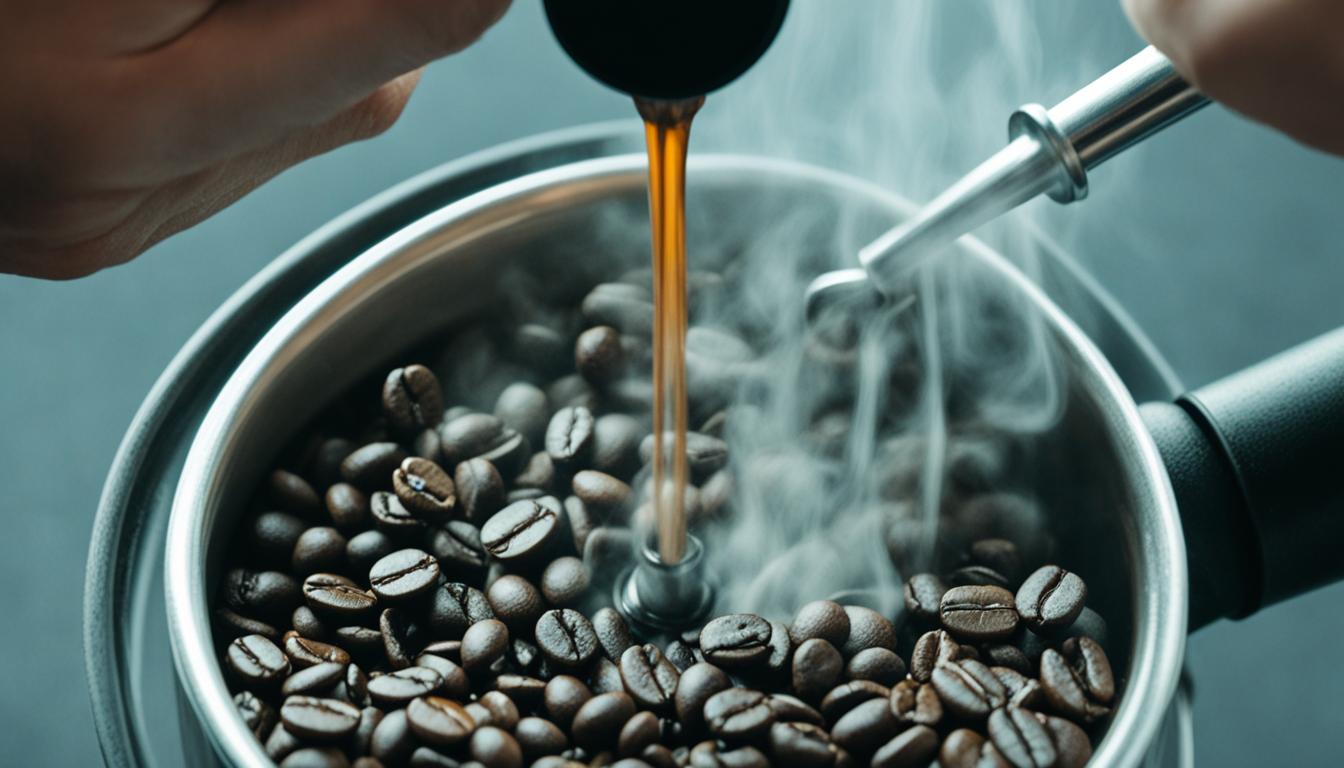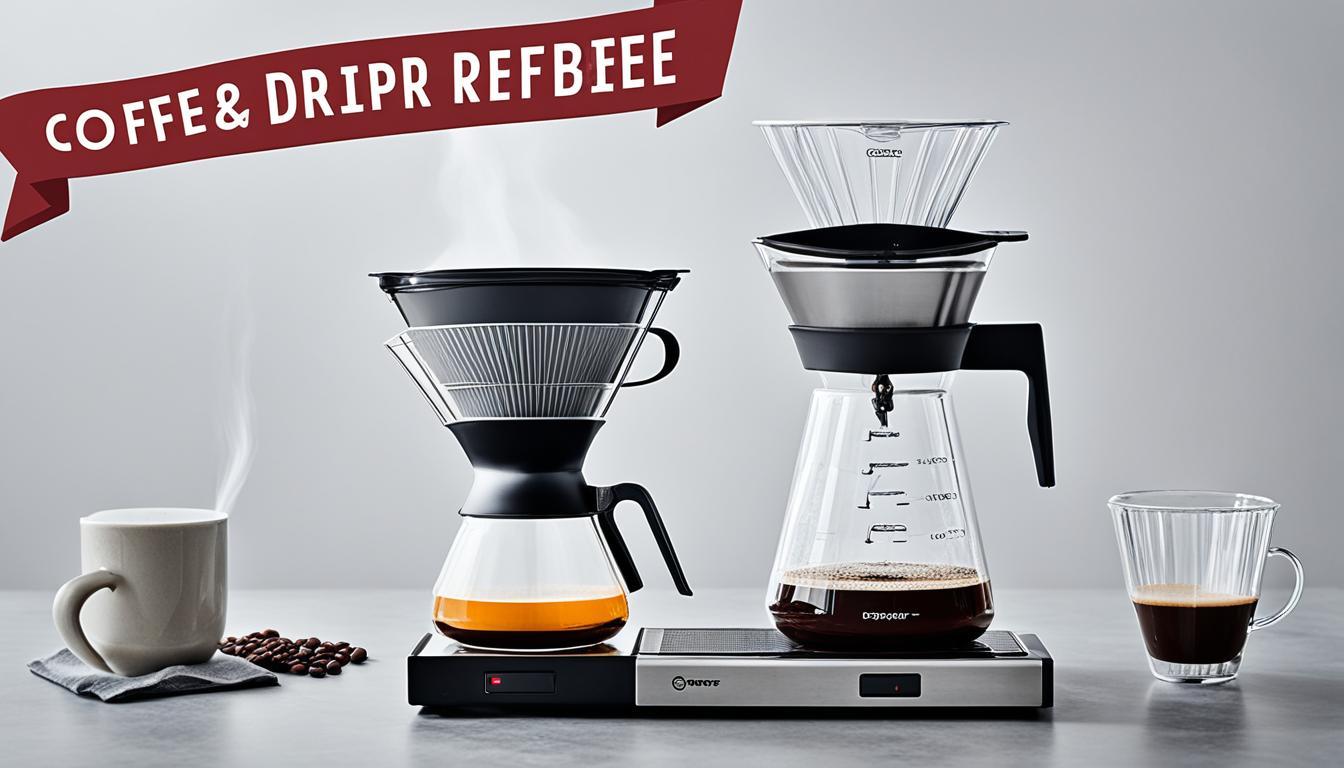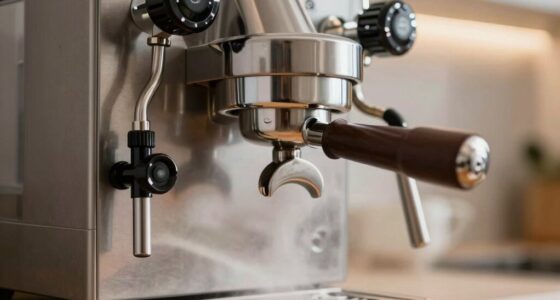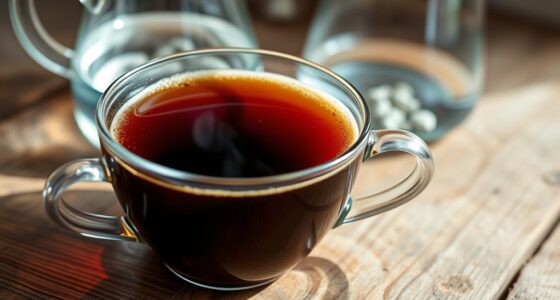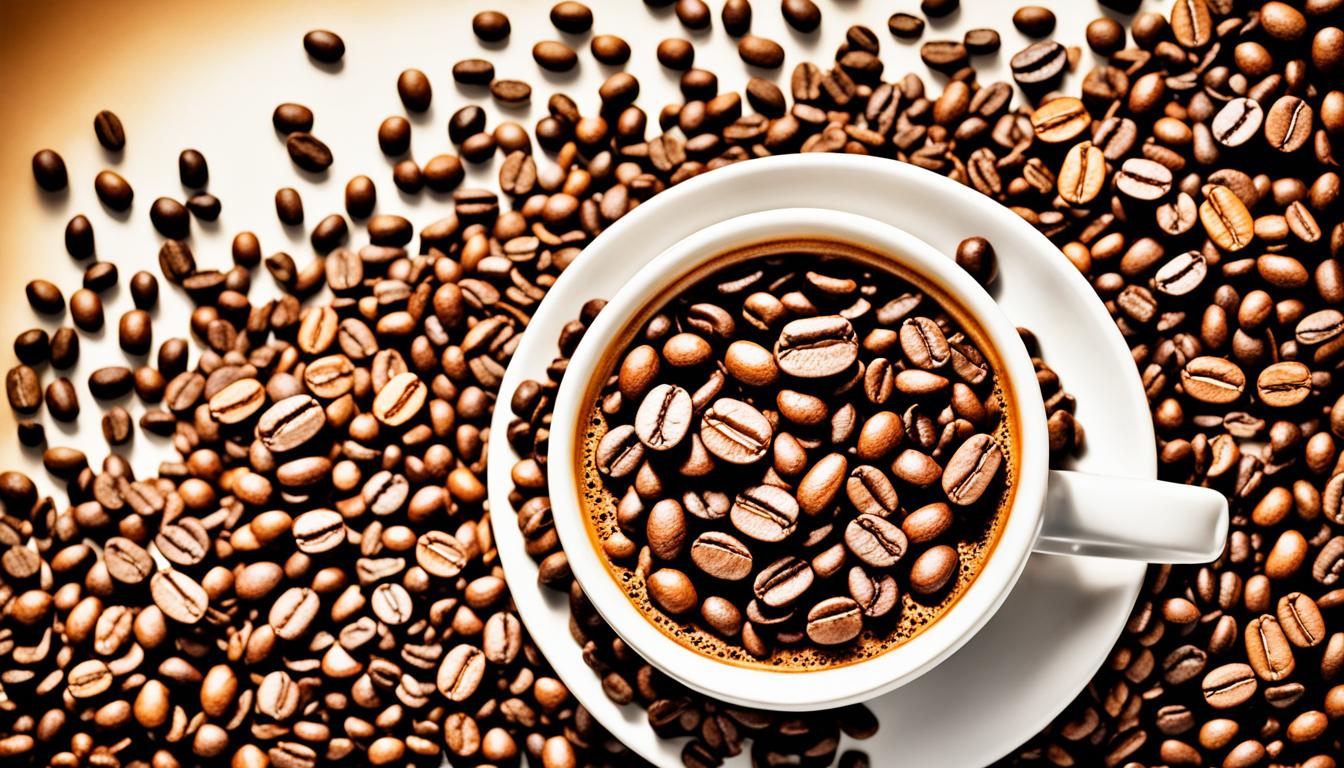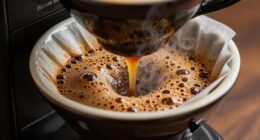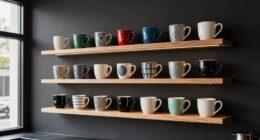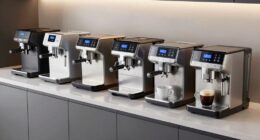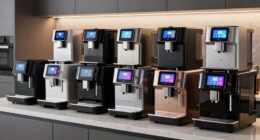Did you realize that sealed coffee beans can remain fresh for approximately six months in the pantry? When frozen, they can last for up to two years. Proper storage and preparation are crucial for French Press coffee. This brewing method is admired for its simplicity and the flavorful result it produces. Whether you are a seasoned pro or a beginner, this guide will assist you in creating top-notch French Press coffee. You will gain insights into the brewing process and receive advice on enhancing your technique. Our goal is to aid you in crafting the ideal cup of French Press coffee.
Key Takeaways
- Fresh coffee storage is crucial, with pantry life lasting about six months and up to two years when frozen.
- Starting with 7 grams of ground coffee per 4 oz. of water allows for personal taste adjustments.
- The ideal water temperature for brewing is between 195 to 205 degrees Fahrenheit.
- Preheating the French Press for one minute maintains coffee warmth longer.
- Cleaning your French Press after each use prevents stale coffee taste.
- A good coffee-to-water ratio is between 60-70 grams of coffee per liter of water for optimal French Press coffee.
Understanding the French Press Brewing Method
The French Press makes rich, full-bodied coffee. It’s been loved for nearly 200 years. Knowing how it works is key to great coffee.
This method uses a beaker and a plunger with a mesh filter. It separates brewed coffee from the grounds. The beaker can be glass, plastic, or steel.
What is a French Press?
The French Press isn’t just for coffee. It can also strain tea, froth milk, and filter stocks. To start, add coarsely ground coffee with a 1:16 coffee-to-water ratio.
Adjust the recipe to fit your taste. For a 1-liter French Press, use about 8 tablespoons of coffee. That’s 56 grams.

The Science Behind Brewing Coffee
Brewing with a French Press needs an understanding of coffee science. There are phases like wetting, dissolving, and diffusing. These help get flavors from the coffee grounds.
The right timing and water temp are crucial. Use water just off the boil, around 205°F. Stop over-extraction and bitterness by moving coffee to a carafe right after pressing.
| Aspect | Recommended | Notes |
|---|---|---|
| Coffee-to-Water Ratio | 1:16 | Experiment with personal preferences. |
| Grind Size | Coarse | Aim for coarse sea salt texture. |
| Brewing Temperature | 195°F – 205°F | Just off boiling for optimal extraction. |
| Steeping Time | 4 to 6 minutes | Stir at 1-minute mark, press at 4 minutes. |
| Cleaning Method | Swirl and dispose | Add water to grounds, swirl before disposal. |
By understanding the extraction process and controlling brewing elements, you can make great French Press coffee every time.
Mastering the French Press: Tips and tricks for the perfect brew
To make an amazing French Press coffee, details matter a lot. Start by choosing the right coffee and grind size. Know the brewing ratios and water quality. These steps change a simple drink into a remarkable one.
Choosing the Right Coffee Beans
Using fresh beans is key to great flavor. It’s best to buy beans from local roasters to ensure they’re fresh. Coffee beans are at their best for up to six months when stored properly. Try different origins and roasts to discover what you like most.
Grind Size Matters
The grind size affects the coffee’s taste. A medium to coarse grind is ideal for French Press. It stops the coffee from getting bitter. A burr grinder gives a consistent grind. Grinding beans just before brewing brings out their full flavor.
Brewing Ratios and Water Quality
Knowing the right brewing ratio is crucial for a good coffee. Starting with a 1:16 ratio of coffee to water is a good idea. Adjust it to fit your taste. For one serving, try 15 grams of coffee with 250 ml of water. The water’s quality is also important. Using water with the right minerals helps get the best flavor from the coffee.
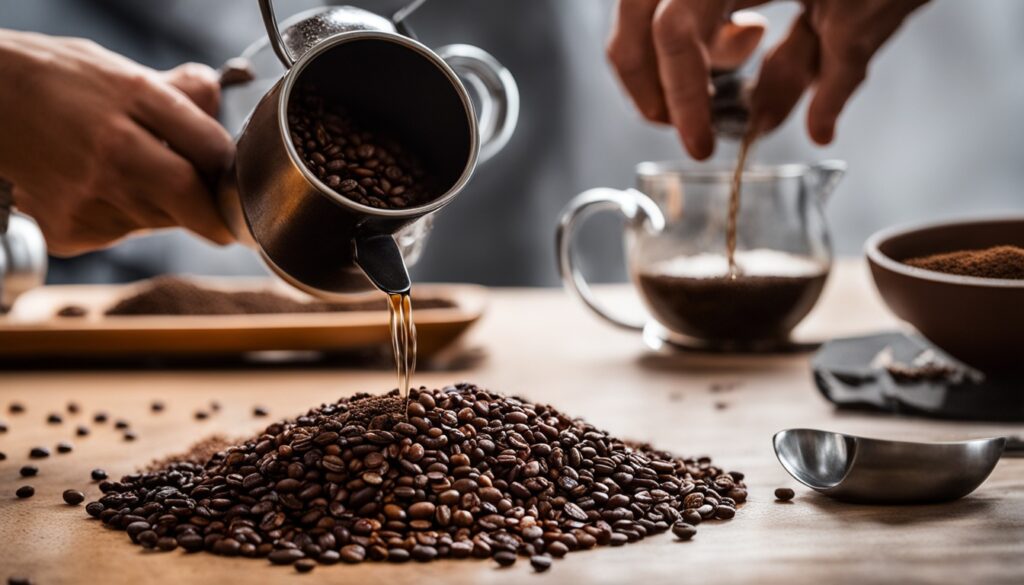
| Aspect | Recommendation |
|---|---|
| Coffee Beans | Fresh, locally roasted beans |
| Grind Size | Medium to coarse |
| Brew Ratio | 1:16 (15g coffee to 250ml water) |
| Water Quality | High mineral content preferred |
| Brew Time | 4 minutes |
Essential Techniques for French Press Brewing
To make a great French Press coffee, certain steps are key. You need the right water temperature and to know how the coffee blooms. How long you brew the coffee also affects its flavor and overall quality.
Correct Water Temperature
When making French Press, the water should be between 195°F and 205°F. This range gets you the best extraction without burning the grounds. If the water is too cold, your coffee might taste sour. If it’s too hot, it could taste bitter. Let boiling water cool for 30 seconds before you pour for the best flavor.
Preheating Your Equipment
It’s easy to forget to preheat your French Press and cups. But doing this with hot water helps keep the temperature stable. This step makes a richer tasting coffee by maintaining heat when you mix the grounds and water.
Blooming the Coffee Grounds
Blooming the coffee is a crucial step for a great cup. Wet the grounds with a bit of hot water first. This releases carbon dioxide and leads to a better extraction. Let the grounds sit for 30 seconds before adding the rest of the water to unlock more flavor.
Timing the Brew
The brew time is really important for French Press coffee. Four minutes is just right for extracting the flavors without bitterness. Keep an eye on the clock to make sure your coffee tastes great. Stick to a ratio of 1:15, meaning 14 to 16 grams of coffee for two cups of water. Feel free to adjust the time to match your taste while keeping the coffee delicious.
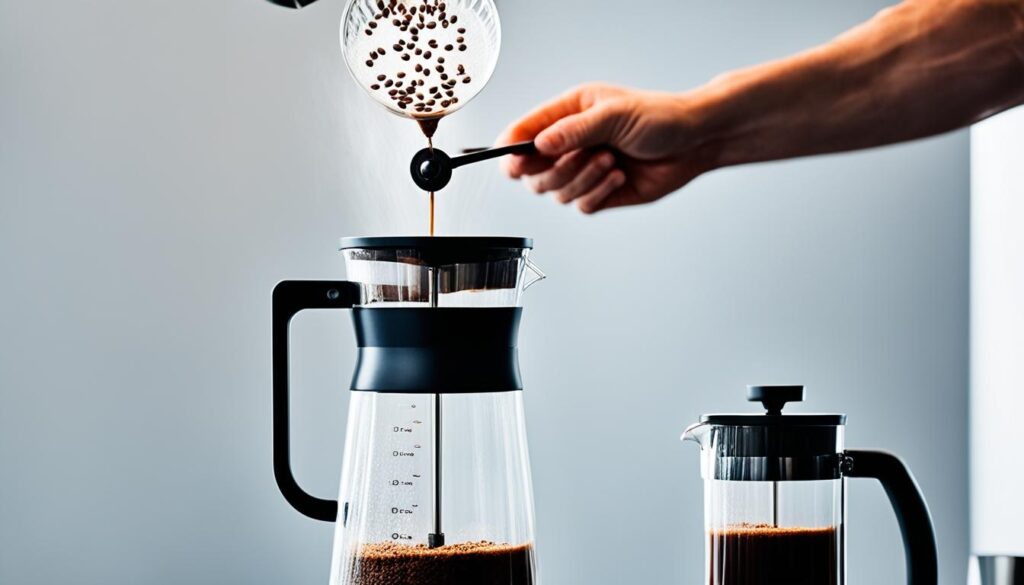
| Brewing Aspect | Recommendation |
|---|---|
| Water Temperature | 195°F – 205°F |
| Brew Time | 4 minutes |
| Coffee-to-Water Ratio | 1:15 (14-16 grams for 2 cups) |
| Bloom Time | 30 seconds |
| Recommended Grinder | Burr grinder for coarseness |
Common Mistakes to Avoid When Brewing French Press Coffee
French Press coffee can be amazing when it’s done right. However, easy-to-make mistakes can mess up the quality. Knowing these errors can make every cup enjoyable and full of flavor.
Over or Under Brewing Issues
Brewing time is key to great flavor. Over-brewing makes it bitter, and under-brewing can give you weak or sour coffee. Four minutes is usually just right for brewing time. Adjusting it a bit helps you find the perfect taste. This way, every cup can be a joy to drink.
Neglecting Equipment Cleaning
Cleaning your French Press is a must to keep coffee tasting fresh. Not cleaning it leaves stale gunk that spoils your coffee. This residue gives coffee weird tastes. Simply rinsing and drying it after each use keeps the brews tasting their best.
Using Inappropriate Coffee Ratios
Getting the ratio of coffee to water right makes all the difference. Aim for between 1:15 and 1:17 for the best flavor. For example, mixing 50g of coffee with 850g of water gives you the ideal 1:17 ratio. If the ratio is off, so will be the flavor, messing with what you’re aiming for.

| Mistake | Consequence | Solution |
|---|---|---|
| Over-brewing | Bitterness | Limit brew time to around 4 minutes |
| Under-brewing | Sourness or weak flavor | Adjust the steeping time for balance |
| Neglecting cleaning | Stale flavors | Clean the French Press after use |
| Improper ratios | Poor flavor balance | Use recommended 1:15 to 1:17 ratio |
Conclusion
Learning the French Press method is rewarding. It mixes understanding, quality stuff, and the right techniques. This guide has given you all the tips you need. Whether you’re a beginner or a pro, these tips can boost your coffee game. Just remember the right coffee-water mix, grind size, and brewing time.
Going over the key points, it’s all about getting the flavor just right. Playing with how long you let it steep and the grind size helps find what works for you. Also, talking with other coffee lovers adds to the fun. They share tips and tricks that can make your coffee even better.
By using these tips and dodging common errors, anyone can make a great cup of coffee at home. French Press is special for its rich flavor profile. Keep practicing and be open to change. Soon, you’ll make the perfect French Press coffee.
